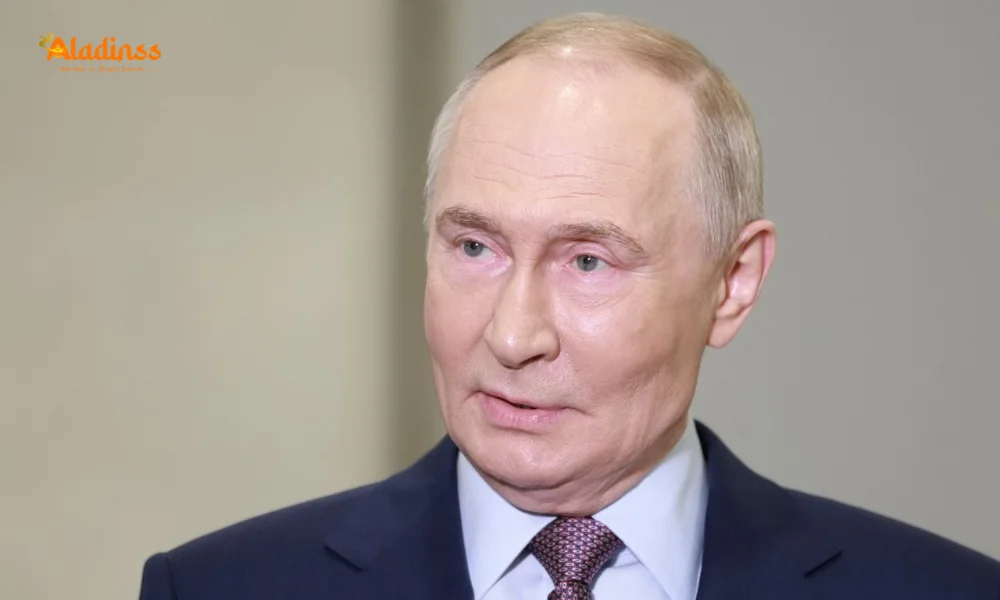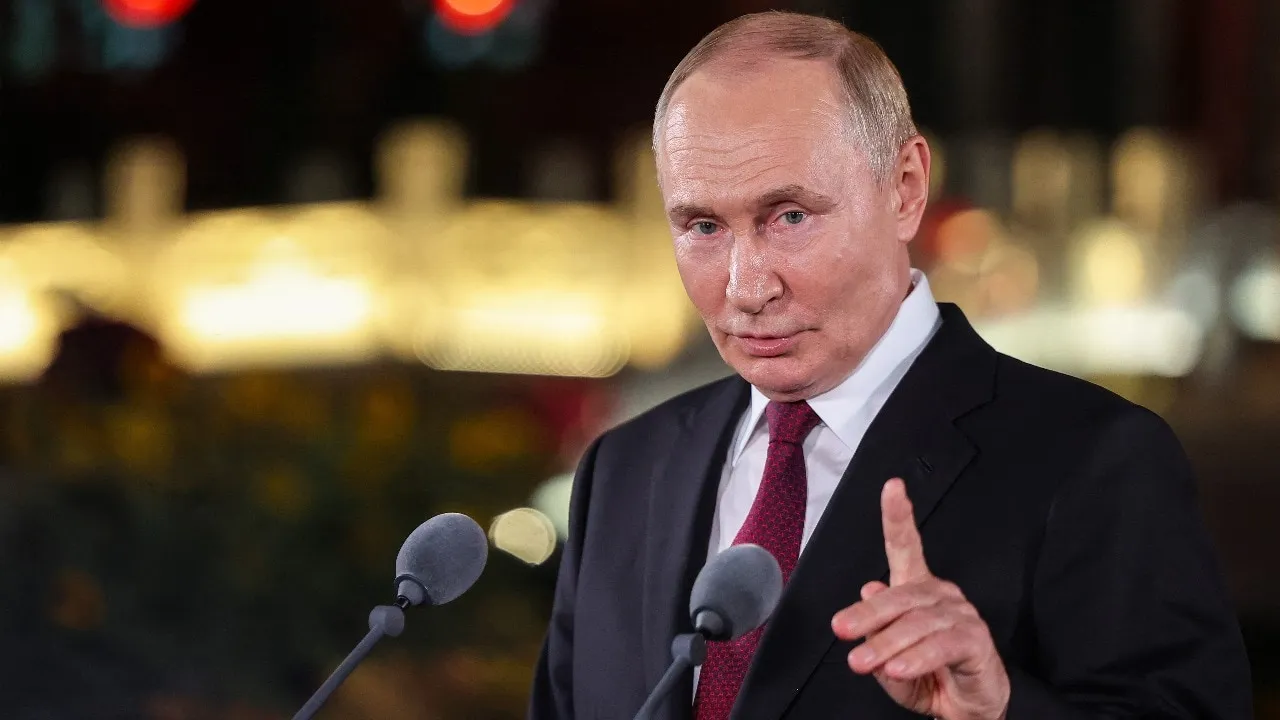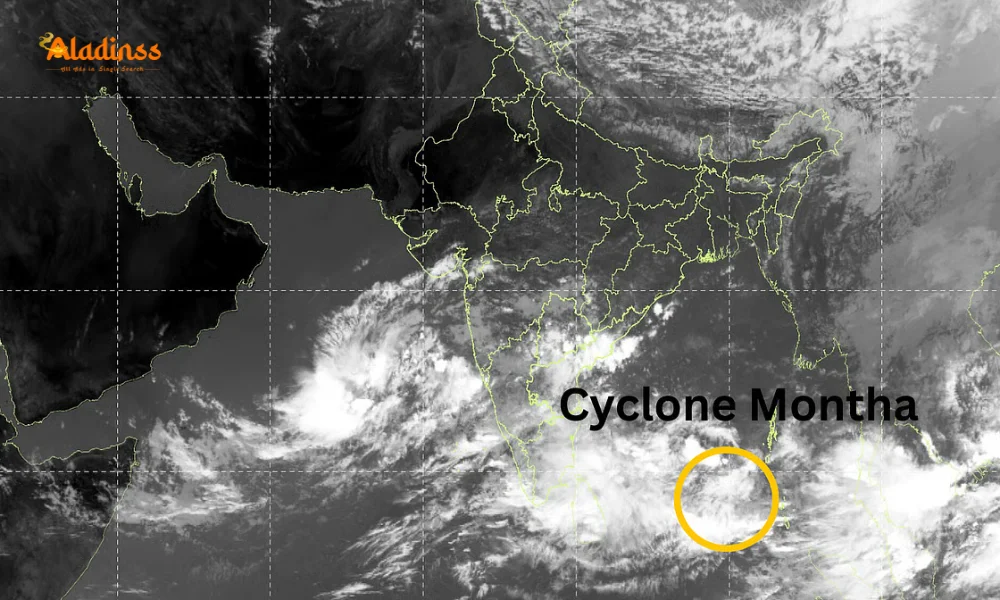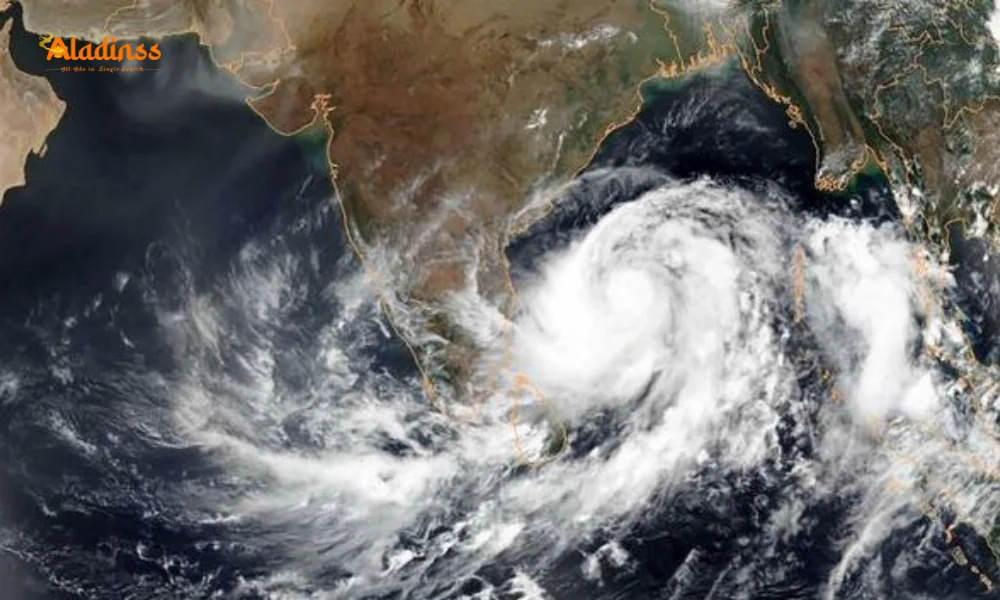Putin’s Dire Warning: Russia Vows Deadly Retaliation After US Tomahawk Strikes

Putin Warns of Devastating Response to US Tomahawk Strikes
Russian President Vladimir Putin issued a stern warning to the United States, cautioning against the potential supply of Tomahawk missiles to Ukraine as the ongoing conflict nears its fourth year. Putin emphasized that any use of these long-range, precision-guided cruise missiles against Russian territory would provoke a “serious, if not devastating” response, signaling heightened tensions in the Russia-Ukraine war. His remarks underscore the delicate balance of global diplomacy and the risks of escalation in an already volatile region.
The Russian leader’s comments come amid growing concerns over the possibility of advanced Western weaponry, such as the US-supplied Tomahawk missiles, being deployed in Ukraine. These missiles, capable of striking targets over 1,500 kilometers away with pinpoint accuracy, represent a significant escalation in military capabilities. Putin’s warning highlights the potential consequences of such a move, urging global powers to reconsider actions that could further destabilize the region.

Putin’s Call for Dialogue Amid Tensions
Despite the strong rhetoric, Putin expressed a preference for dialogue over confrontation. “Dialogue is always better than disputes or war,” he told reporters, advocating for diplomatic efforts to resolve the ongoing conflict. This statement reflects Russia’s dual approach of projecting strength while leaving room for negotiations, a strategy that has characterized its foreign policy throughout the Russia-Ukraine war.
Putin’s remarks were made in the context of increasing Western support for Ukraine, including military aid and economic sanctions against Russia. The Russian president’s call for dialogue suggests an attempt to de-escalate tensions, even as he warns of severe consequences for actions he deems provocative, such as the potential deployment of Tomahawk missiles in Ukraine.
US Stance on Tomahawk Missiles
In Washington, US President Donald Trump dismissed the possibility of providing Tomahawk missiles to Ukraine, citing their complexity and the time required to train personnel. “It takes at least six months to a year to learn how to use them. They’re highly complex,” Trump stated during a press briefing in the Oval Office. He firmly ruled out US involvement in launching such missiles, saying, “The only way a Tomahawk is going to be shot is if we shot it, and we’re not going to do that.”
Trump’s comments indicate a cautious approach to military escalation, aligning with his administration’s broader strategy of avoiding direct involvement in the Russia-Ukraine conflict. By emphasizing the technical challenges of deploying Tomahawk missiles, Trump seeks to reassure both domestic and international audiences that the US is not planning to escalate the conflict through advanced weaponry transfers.
Sanctions on Russian Oil Giants
In a related development, the United States imposed new sanctions on Russia’s two largest oil companies, Rosneft and Lukoil, marking the first major sanctions against Russia since Trump’s return to office. These measures target Russia’s critical energy sector, aiming to disrupt its economic stability amid the ongoing war. Putin acknowledged the sanctions as “serious” but downplayed their impact, stating, “They will have certain consequences, but they will not significantly affect our economic well-being.”
The Russian president described the sanctions as an “unfriendly act” that undermines efforts to improve Russia-US relations, which he noted had only recently begun to recover. This statement reflects the broader geopolitical challenges facing both nations, as economic sanctions and military tensions continue to strain diplomatic ties.
Geopolitical Implications
The exchange between Putin and Trump highlights the complex dynamics of the Russia-Ukraine war and its global implications. The potential deployment of Tomahawk missiles represents a significant escalation, given their long-range capabilities and precision. Such a move could alter the strategic balance in the conflict, prompting a strong Russian response and potentially drawing other global powers into the fray.
Analysts suggest that Putin’s warning is both a deterrent and a signal to domestic audiences, reinforcing Russia’s resolve to protect its territory. Meanwhile, Trump’s reluctance to supply advanced weaponry reflects a broader US strategy to support Ukraine without triggering a direct confrontation with Russia. This delicate balancing act underscores the challenges of managing a protracted conflict with far-reaching consequences.
Economic and Military Context
The imposition of sanctions on Rosneft and Lukoil adds another layer of complexity to the Russia-US relationship. Russia’s energy sector is a cornerstone of its economy, and targeting these firms aims to weaken its financial capacity to sustain the war effort. However, Putin’s assertion that the sanctions will not significantly impact Russia’s economy suggests confidence in the country’s ability to adapt, possibly through alternative markets or domestic measures.
On the military front, the Russia-Ukraine war continues to evolve, with both sides seeking to gain strategic advantages. The potential introduction of Tomahawk missiles could shift the battlefield dynamics, enabling Ukraine to strike deep into Russian territory. However, such a move would likely escalate the conflict, prompting a response that could have devastating consequences for all parties involved.
Global Reactions and Future Outlook
The international community is closely monitoring the situation, with many nations urging restraint to avoid further escalation. The United Nations and other diplomatic bodies have called for renewed efforts to negotiate a peaceful resolution, echoing Putin’s comments on the value of dialogue. However, the entrenched positions of both Russia and the US, coupled with ongoing military support for Ukraine, make a swift resolution unlikely.
As the Russia-Ukraine war approaches its fourth year, the stakes continue to rise. Putin’s warning about a “devastating” response to Tomahawk missile strikes serves as a reminder of the high risks involved in escalating military support. At the same time, Trump’s cautious stance suggests an awareness of the potential consequences, even as the US continues to impose economic pressure through sanctions.
The coming months will be critical in determining the trajectory of the conflict. Whether through diplomatic breakthroughs or further military escalation, the decisions made by global leaders will shape the future of the region and the broader international order. For now, the world watches as tensions simmer, with the specter of advanced weaponry and economic sanctions looming large.
Comment / Reply From
No comments yet. Be the first to comment!











